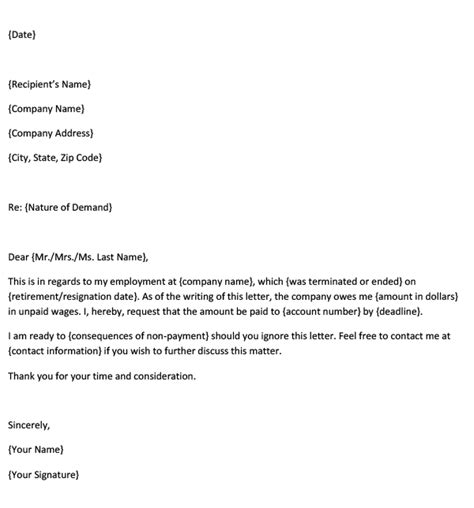Unpaid By Your Employer? Taking Action And Seeking Resolution

It can be incredibly frustrating to work hard for your employer and not receive the compensation you deserve. Whether it’s missing wages, unpaid overtime, or other forms of uncompensated work, it’s important to take action to protect your rights and seek a resolution. In this post, we’ll explore the steps you can take to address the issue of unpaid wages with your employer and seek a fair solution.
1. Understand Your Rights
The first step in addressing unpaid wages is to understand your rights as an employee. In the United States, the Fair Labor Standards Act (FLSA) sets minimum wage and overtime pay standards for most employees. Some states and cities have additional wage and hour laws that provide greater protections for workers.
It’s important to know whether you are classified as an exempt or non-exempt employee under the FLSA. Exempt employees are typically salaried and not entitled to overtime pay, while non-exempt employees are typically hourly and entitled to overtime pay for hours worked over 40 in a workweek.
2. Document Your Hours and Wages
If you believe you are owed unpaid wages, it’s important to document the hours you worked and the wages you were supposed to be paid. Keep a record of your hours worked, including any overtime hours, and your rate of pay. If you have pay stubs or other documentation from your employer, keep those as well.
If you don’t have access to your pay stubs or other documentation, you can request them from your employer. Under the FLSA, employers are required to maintain accurate records of employees’ hours worked and wages paid.
3. Talk to Your Employer
The next step is to talk to your employer about the issue of unpaid wages. Schedule a meeting with your supervisor or human resources representative to discuss your concerns. Be prepared to present your documentation and explain why you believe you are owed unpaid wages.
It’s important to approach this conversation in a professional and respectful manner. Don’t make accusations or threats, but instead focus on finding a solution that is fair for both you and your employer.
4. File a Complaint
If you are unable to resolve the issue with your employer through discussion, you may need to file a complaint with a government agency. The Department of Labor’s Wage and Hour Division (WHD) is responsible for enforcing the FLSA and investigating complaints of unpaid wages.
You can file a complaint with the WHD online, by mail, or by phone. The WHD will investigate your complaint and work with your employer to resolve the issue. If your employer is found to be in violation of the FLSA, they may be required to pay back wages, as well as fines and penalties.
5. Seek Legal Help
If you believe your employer is violating your rights under the FLSA and other wage and hour laws, you may need to seek legal help. An employment lawyer can help you understand your rights and options, and can represent you in negotiations with your employer or in court.
Before hiring a lawyer, be sure to research their experience and reputation. Look for a lawyer who has experience with wage and hour cases and who has a track record of success.
Conclusion
If you are unpaid by your employer, it’s important to take action to protect your rights and seek a resolution. Understand your rights, document your hours and wages, talk to your employer, file a complaint, and seek legal help if necessary. By taking these steps, you can ensure that you are paid fairly for the work you do.
FAQs
What is the Fair Labor Standards Act?
The Fair Labor Standards Act (FLSA) is a federal law that sets minimum wage and overtime pay standards for most employees in the United States. It also establishes record-keeping requirements for employers and prohibits child labor.
What should I do if my employer won’t pay me?
If your employer won’t pay you the wages you are owed, you should document your hours and wages, talk to your employer, file a complaint with the Department of Labor’s Wage and Hour Division, and seek legal help if necessary.
What is the difference between exempt and non-exempt employees?
Exempt employees are typically salaried and not entitled to overtime pay, while non-exempt employees are typically hourly and entitled to overtime pay for hours worked over 40 in a workweek. The classification of exempt or non-exempt is based on the employee’s job duties and salary level.
Can my employer retaliate against me for filing a complaint?
No, it is illegal for an employer to retaliate against an employee for filing a complaint about unpaid wages or other wage and hour violations. If you believe you have been retaliated against, you should speak to an employment lawyer.
